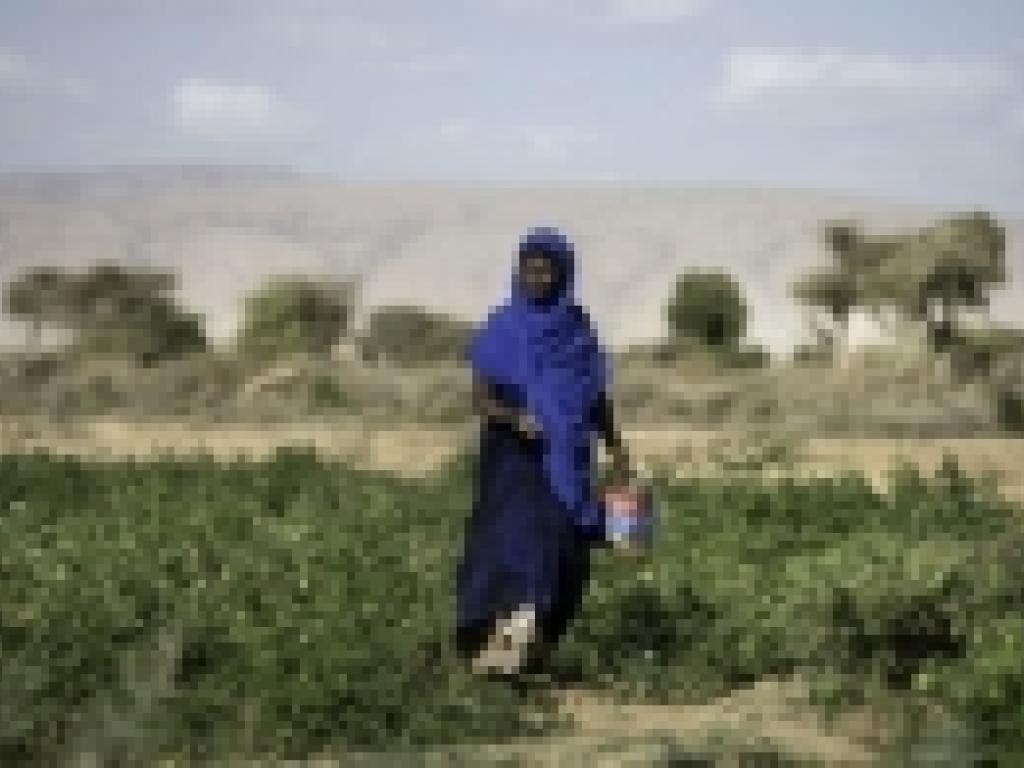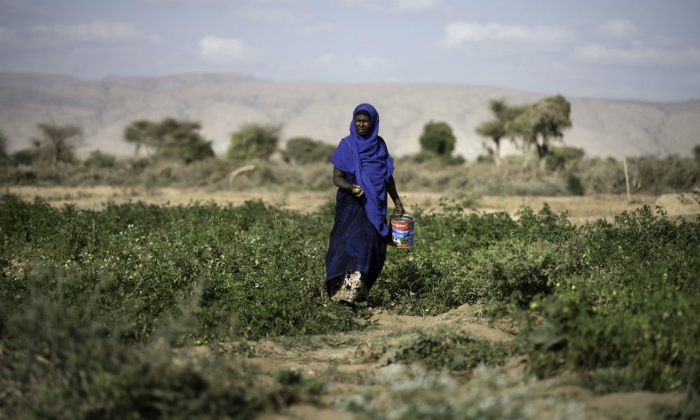From climate science to climate action

Jesse DeMaria Kinney (Oxfam GB) reflects back on the Adaptation Futures Conference and calls for more adaptation action building on the rich pool of global research and knowledge now available.
Here and now. Here I am now, having returned from nearly three weeks of climate change adaptation packed reflection and learning in Cape Town, South Africa. It’s been exhausting but rewarding as I’ve been challenged by – and challenged – some of the leading thinkers in the field.

Hudon is part of Oxfam’s arable farming project in Ethiopia, helping pastoralists who have been struggling with drought, to diversify their source of income. (Credit: Kieran Doherty / Oxfam)
One of the key events during my trip was the Adaptation Futures conference, a three day event which attracted over 1,300 scientists, practitioners, business leaders, and policy makers from around the world. It truly provided a global perspective on climate science, practice and implications on policy. The Adaptation at Scale in Semi Arid Regions programme (ASSAR) – and Oxfam – shared our research findings and empirical evidence, from our experience using a research for impact approach, during numerous sessions. This included Oxfam hosting sessions on models of enabling environments for researcher-practitioner collaboration, and on the role of performance arts in communicating adaptation research and practice.
Overall it was an excellent experience, but while there was a lot about adaptation futures I felt there was not enough discussion about longer-term adaptation actions today. Saleemul Huq, director of the International Centre for Climate Change and Development in Bangladesh, calls for the need for greater, more integrated or joined up adaptation in his recent blog. He also flags that “adaptation to climate change is now a recognized science with its own researchers and scholars.” We must build on this rich pool of knowledge and step up the drive towards transformative adaptation.
For nearly five years, I’ve been working with researchers on how they – we – can maximise opportunities for research impact. This means paying close attention to ensure research processes are participatory and inclusive with stakeholders. This, combined with effective communications (don’t confuse with dissemination!) and the capacity development of researchers and research-users, is all done to ensure that research products are relevant, meaningful and, ideally, timely. Essentially, we’ve been working with researchers to collaboratively move from research to action. It’s an integrated process where the sum of our actions aims to bring about change greater than any one academic or practitioner could achieve.
It occurred to me that this same barrier between research and action in many disciplines exists across the ‘adaptation space’. There is plenty of diagnosis across the globe from local to national levels to determine what the most effective and appropriate adaptation actions might be. And most point to integrated solutions (e.g. ASSAR briefing note on water governance). But there is still a lack of urgency around putting our knowledge into action at the scale required to respond to climate change.

Figure credit: IPCC, from the IPCC Report Climate Change 2014: Impacts, Vulnerability and Adaptation. Summary for policymakers, Figure 9 p.29
This opinion piece was first published on the Views & Voices blog of Oxfam Policy and Practice.